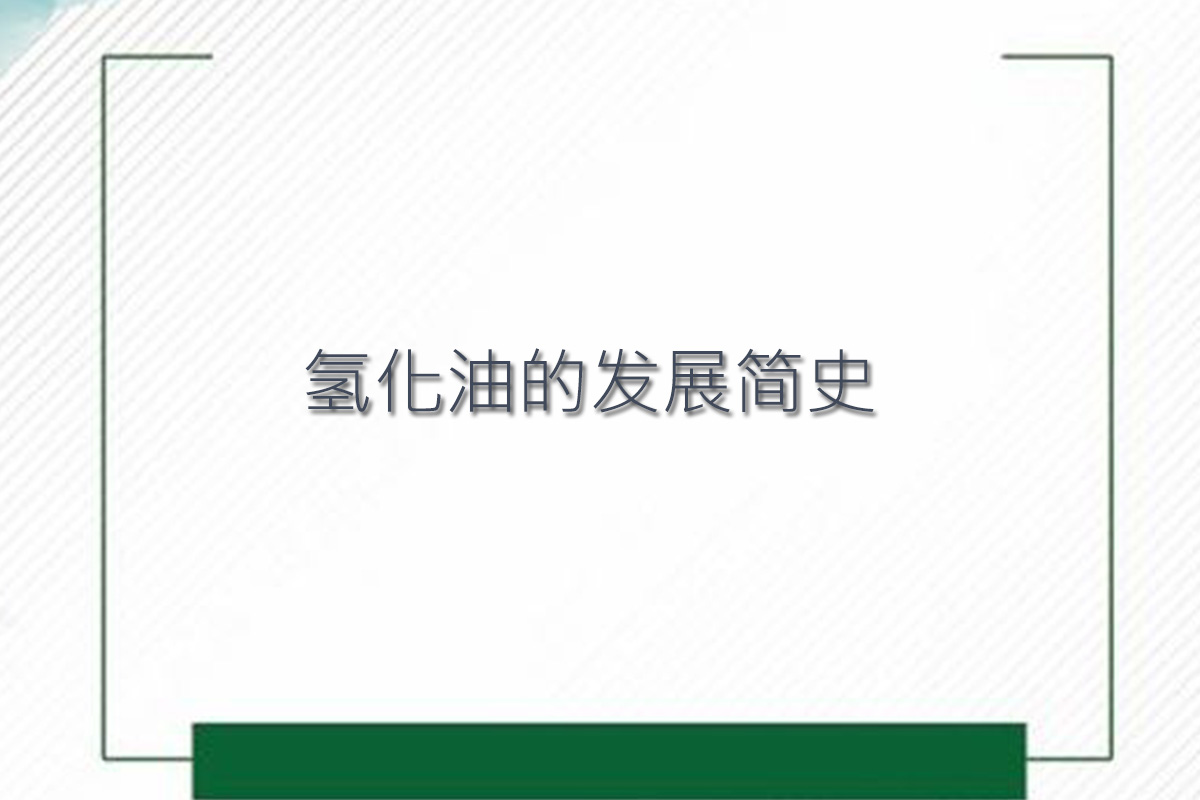
Hydrogenated oil, also called “vegetable cream” and “vegetable butter” Non-dairy fat powder”. Currently, it is widely used in food baking fields such as bread, cheese, margarine, cakes and biscuits. Hydrogenated oil produces a large amount of trans fatty acids, which increases the risk of cardiovascular disease, diabetes, etc. Countries around the world have restricted it, but China uses it on a large scale and without restrictions.
Here is a brief history of the development of hydrogenated oil:
More than 100 years ago, Napoleon of France Napoleon III launched the Franco-Prussian War. During the stalemate, agricultural production decreased, there were fewer cattle and sheep, and there was less butter. Napoleon III issued an order to solicit substitutes for butter. Soon, French scholar Majors Morris successfully developed margarine and applied for it. It won awards and was granted production patents in France and England in 1869. The quality of the original margarine was very rough due to the source of oil raw materials and process technology.
At the end of the 19th century and the beginning of the 20th century, German chemist William Norman invented the hydrogenation technology of vegetable oil, which made a leap forward in margarine processing technology. It became technically possible for vegetable oil to be used as a raw material for margarine. Hydrogenated vegetable oil It can be used instead of animal fat, and the price is much cheaper. Starting from Germany and the United Kingdom, hydrogenated vegetable oil was quickly used on a large scale in the food industry, solving people’s urgent need for fat nutrition and calories in times of material scarcity and war. Need, in this sense, hydrogenated vegetable oil has made contributions to mankind in history.
In November 2013, the U.S. Food and Drug Administration (FDA) announced a decision to cancel the “Generally Recognized as Safe” (GRAS) certification of partially hydrogenated oils. These oils often contain high levels of trans fatty acids. Hydrogenated oil produces a large amount of trans fatty acids, which increases the risk of cardiovascular disease, diabetes, etc. Countries around the world have restricted it, but China uses it on a large scale and without restrictions.
In 2003 the World Health Organization recommended no more than 1% trans fat intake, and in May 2018 it introduced a 6-step guide to eliminate industrially produced trans fats from the global food supply �

 微信扫一扫打赏
微信扫一扫打赏

